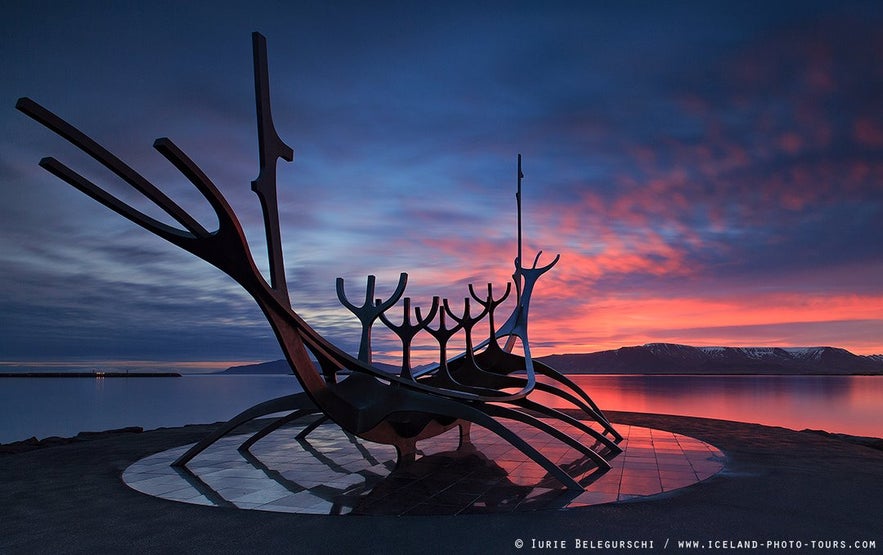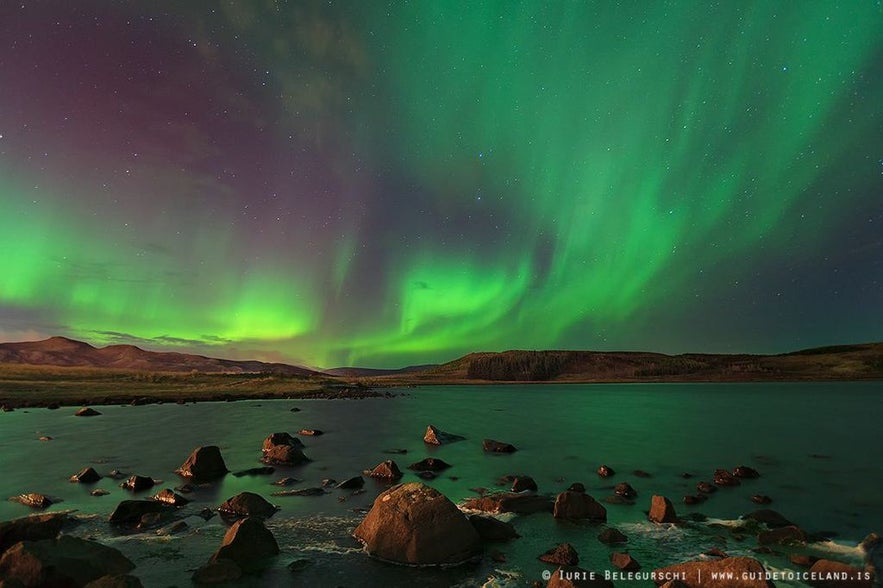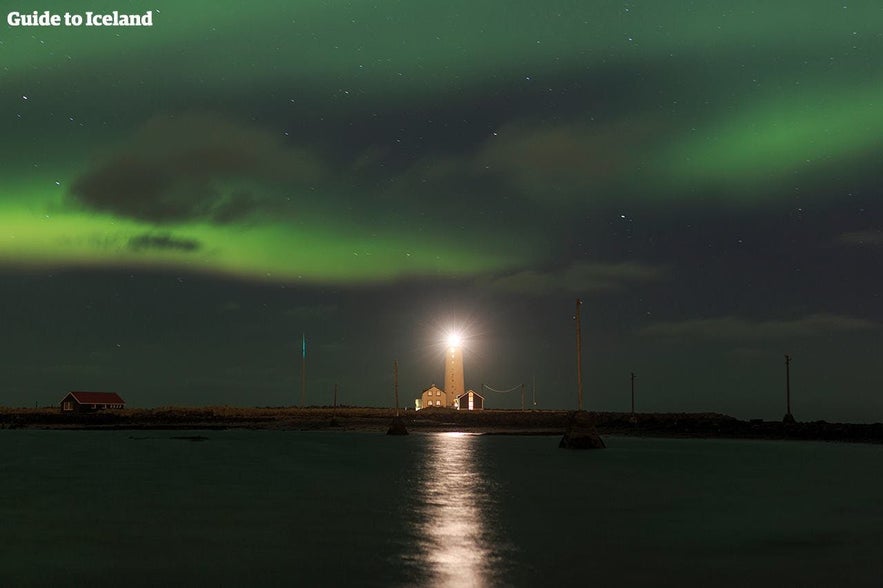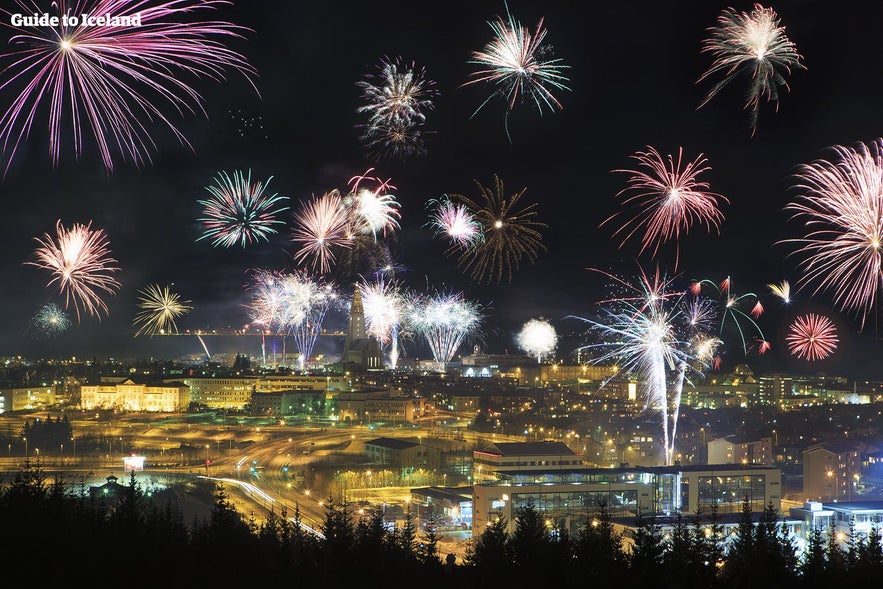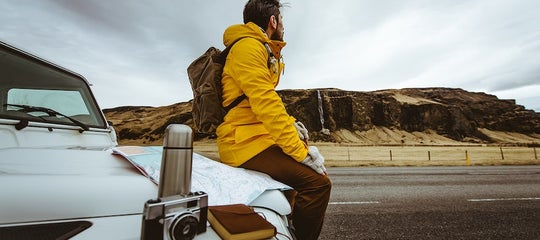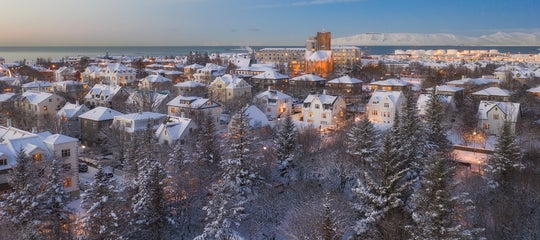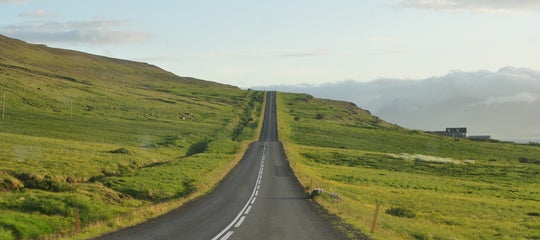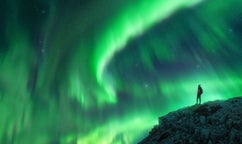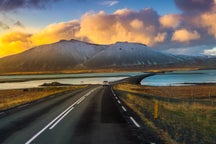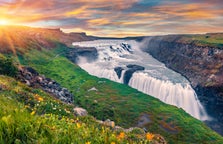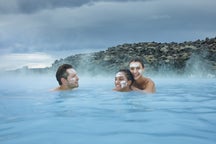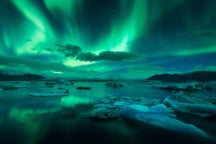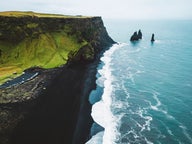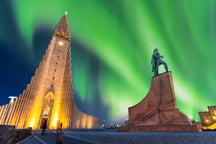What are the best annual events in Iceland? When do the best annual events in Iceland occur? Here's a list of our top picks, listed from January to December, to help you plan what’s on during your stay.
- Discover the fascinating History of Iceland
- Find out everything you need to know about National Holidays in Iceland
Þorrablót
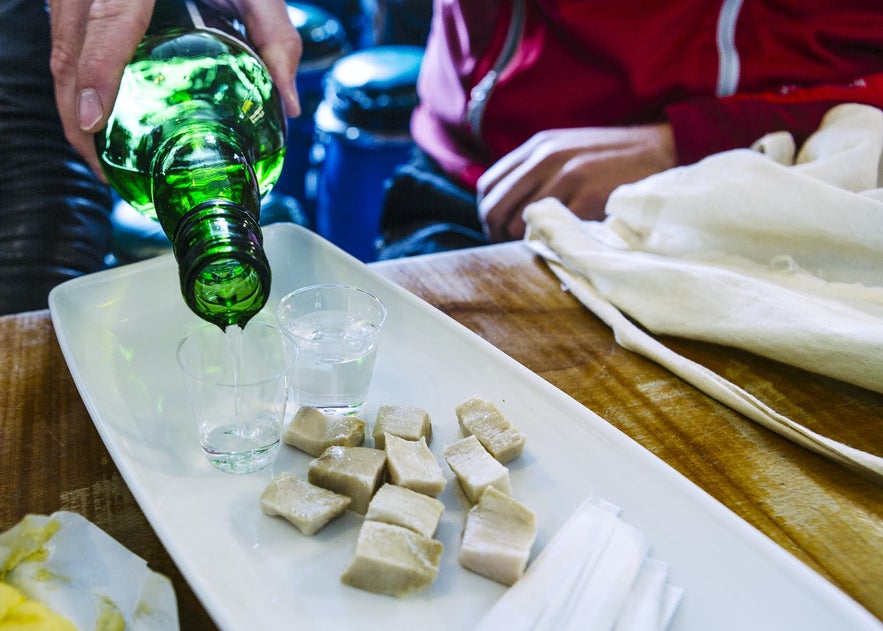
In either January or February, Icelanders celebrate the 'feast of Þorri,' a midwinter festival named after a month in the Old Icelandic Calendar. The tradition is to gather somewhere cozy with friends and family to eat a spread of time-honored national delicacies.
Why You Can Trust Our Content
Guide to Iceland is the most trusted travel platform in Iceland, helping millions of visitors each year. All our content is written and reviewed by local experts who are deeply familiar with Iceland. You can count on us for accurate, up-to-date, and trustworthy travel advice.
From manuscripts of the Middle Ages, we know that this festival has a long history, though it’s unclear exactly how the original blót was celebrated. Records nevertheless point to a lively feast with abundant food and drink.
- See also: Delicious Icelandic Recipes
- Check out this Reykjavik by Food Walking Tour
In earlier centuries, Icelanders preserved food by salting, smoking, burying, and fermenting, which is why such “delicacies” are eaten during Þorrablót today. Favorites and staples include sour ram testicles, boiled sheep heads, and of course, fermented shark.
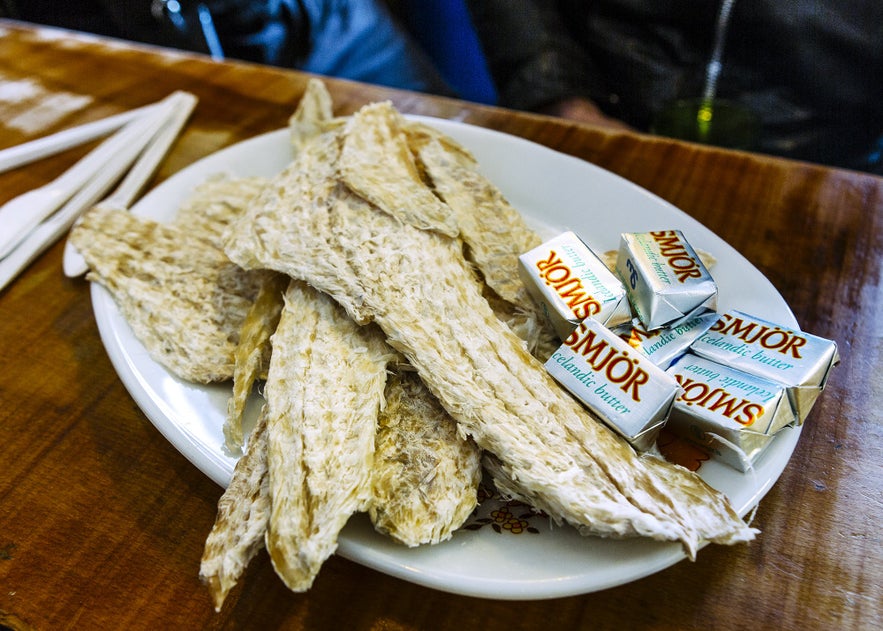
Being able to stomach these traditional foods is considered a small badge of honor in Icelandic culture. Even the hardiest will want to wash some of them down with a shot of Brennivín (Icelandic schnapps) to cleanse the palate.
- See also: The Giants of Iceland | The Story of Iceland's Strongmen
- See also: The World's Most Disgusting Icelandic Food
The Food and Fun Festival
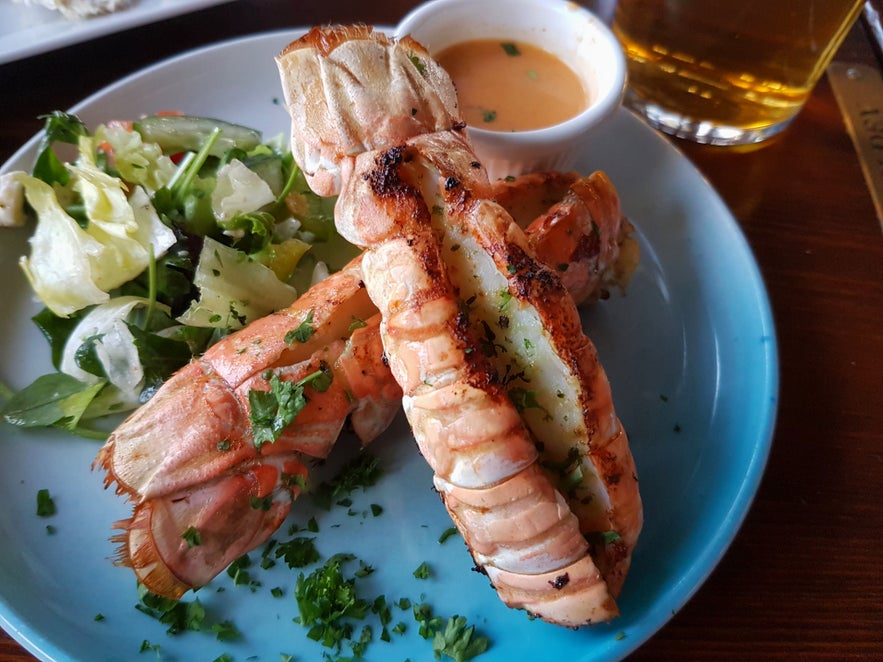
In February or March, Reykjavik hosts the Food and Fun Festival, when top international chefs collaborate with the city’s best restaurants to craft inventive menus using Icelandic ingredients.
Each guest chef partners with a participating restaurant to create a special menu inspired by their own background and local produce. The festival closes with a lively competition where chefs present three courses, then the city celebrates late into the night.
If you enjoy fine dining and bold flavors, Food and Fun is not to be missed.
- See also: The Best Restaurants in Reykjavik
- See also: Top 21 Vegan & Vegetarian Restaurants in Reykjavik
Winter Lights Festival
Early February brightens the dark season with Reykjavik’s citywide Winter Lights Festival. Expect illuminated art trails, free museum openings, and a festive Pool Night in the geothermal baths, an atmospheric way to experience culture, light, and long winter evenings.
DesignMarch
Iceland’s premier design and architecture festival brings exhibitions, talks, and pop-ups to venues across Reykjavik each spring. It’s a brilliant window into local creativity, from furniture and fashion to sustainable innovation.
The First Day of Summer
On the first Thursday after April 18, Iceland celebrates Sumardagurinn fyrsti, the First Day of Summer. Parades, brass bands, and community events mark the opening of the “summer” half of the old Icelandic calendar, even if there’s still a nip in the air.
The Reykjavik Art Festival
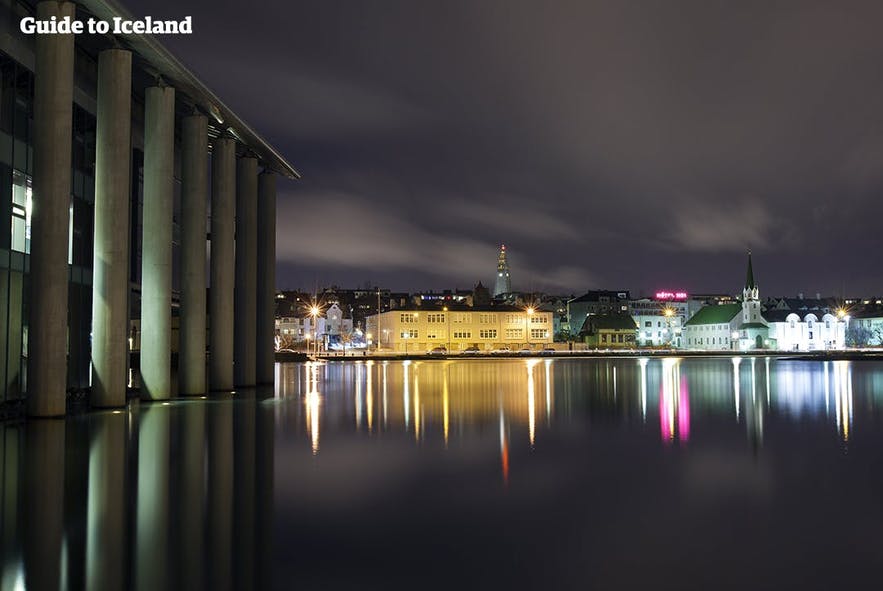
Founded in 1970, the Reykjavik Art Festival is a multidisciplinary celebration of music, visual arts, dance, literature, and more. It is now held biennially in late May and early June, featuring world-class performances across the city’s venues and public spaces.
- See also: Top 10 Festivals in Iceland
- See also: Top 10 Things to Do in Reykjavik
Over the years the festival has welcomed many renowned artists, including Vladimir Ashkenazy (the festival’s honorary president), Nina Simone, Andy Warhol, Leonard Cohen, Björk, Sigur Rós, David Bowie, and many more. Lovers of the arts will find a rich program to explore.
- See also: Art Galleries in Reykjavik and Graffiti and Street Art in Reykjavik
- Gain access to the capital's museums with a Reykjavik City Card
Independence Day in Iceland
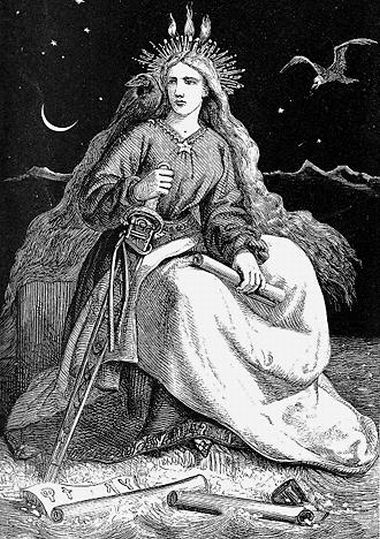
Icelanders held a referendum from May 20th to 23rd in 1944 and voted overwhelmingly to become an independent, sovereign state. Independence Day is celebrated on June 17th, the birthday of Jón Sigurðsson, who led the independence movement.
- See also: Where Did Icelanders Come From?
Festivities take place all over the country with parades led by scouts and brass bands, speeches in public squares, and an appearance by Fjallkonan (the Woman of the Mountain), the personification of Iceland. Expect concerts, family fun, and a cheerful atmosphere throughout the evening.
- See also: The History of Iceland and Folklore in Iceland
Fishermen’s Day (Festival of the Sea)
The first Sunday in June honors Iceland’s seafaring heritage with parades, sea-rescue demonstrations, live music, and family activities along harbor areas, especially around Reykjavik’s Old Harbor and Grandi.
Summer Solstice in Iceland
On June 21st, the summer solstice marks the year’s longest day. Across Iceland the nights are bright, in North Iceland the sun barely dips, while in Reykjavik the sky glows all night. Many mark the date with outdoor gatherings and special walks, and followers of the Old Norse faith (Ásatrúarfélagið) hold a major feast at Thingvellir National Park.
One of the most popular solstice-season events near Reykjavik is the Viking Festival in Hafnarfjordur, with period costumes, music, crafts, and sword-fighting displays by professional Vikings. Don’t miss a hearty meal at the Viking restaurant Fjörukráin.
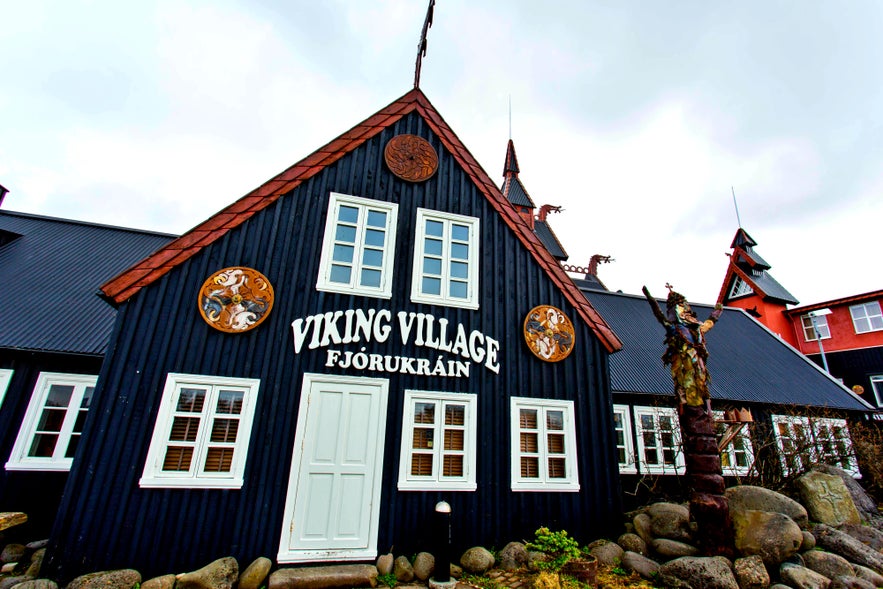
Folklore buffs can try an old midsummer tradition on Jónsmessa (June 24): rolling in the morning dew for good luck.
- See also: The Midnight Sun in Iceland
- See also: Getting Naked in Iceland
The Folk Festival in North Iceland
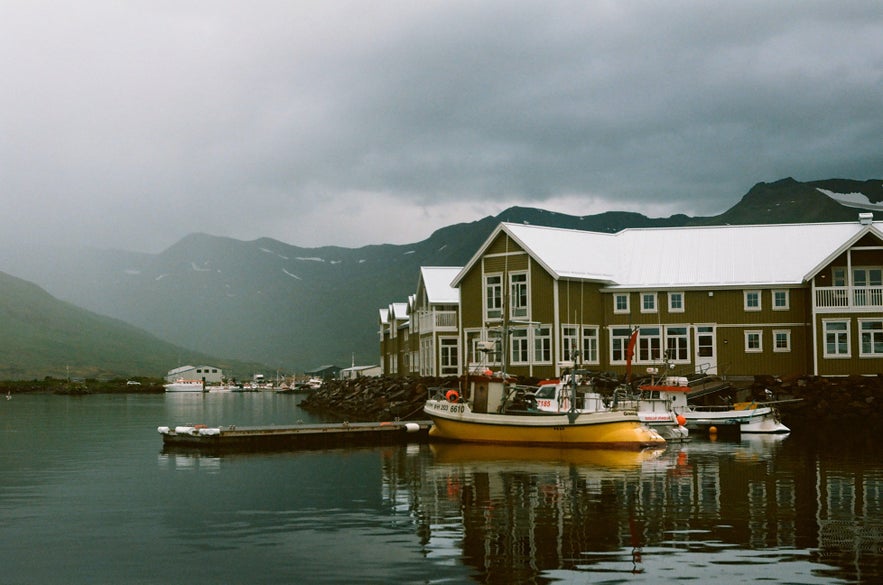 Photo by Alena Timofeeva
Photo by Alena Timofeeva
In early July, the fishing town of Siglufjordur hosts its annual Folk Music Festival, celebrating Icelandic and Scandinavian traditions. Beyond concerts, there are courses and lectures on music and traditional crafts across town.
Music Festivals in Iceland
There are many great outdoor and indoor music festivals in Iceland. The biggest crowd magnet over the Merchant’s Weekend (the first weekend in August) is Þjóðhátíð í Eyjum in the Westman Islands, famed for group singing, bonfires, and a spectacular setting. In Reykjavik, Innipúkinn brings top acts to indoor stages, while the Eastfjords town of Neskaupstadur hosts the family-friendly Neistaflug.
- See also: Music of Iceland
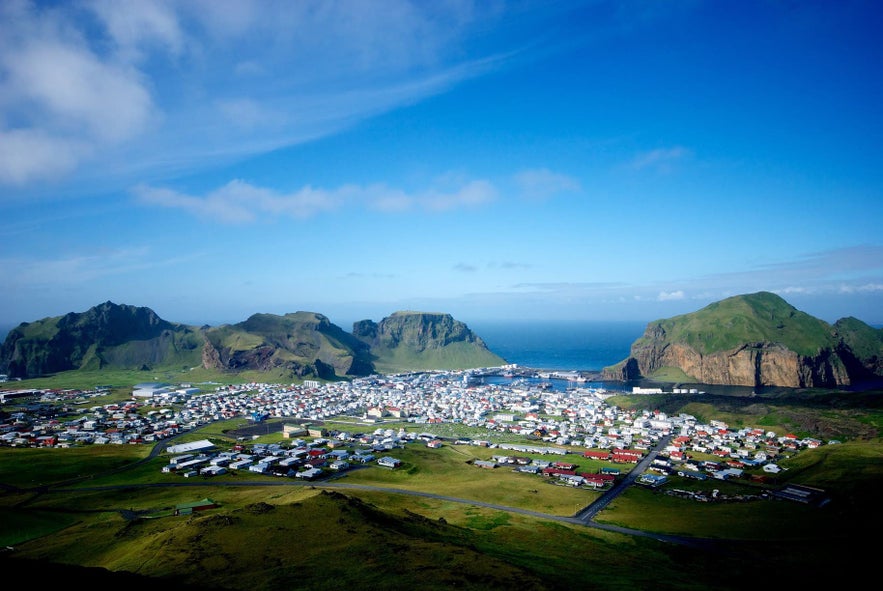 Photo from Private 2 Hour Sightseeing Tour of Heimaey in the Westman Islands with Eldfell & Elephant Rock
Photo from Private 2 Hour Sightseeing Tour of Heimaey in the Westman Islands with Eldfell & Elephant Rock
Reykjavik Pride
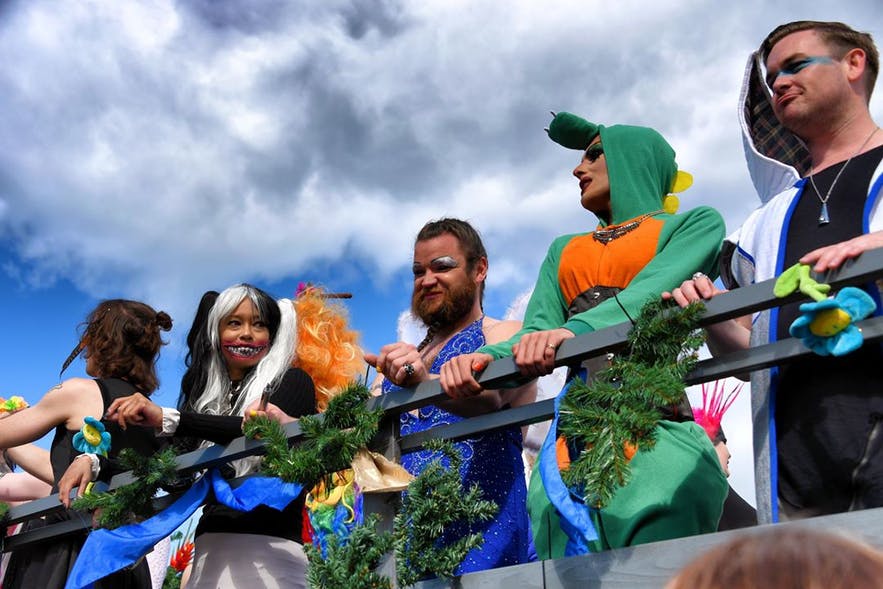 Photo from Richard Chapman
Photo from Richard Chapman
LGBTQ+ rights in Iceland are among the world’s most advanced, thanks in part to tireless work by groups like Samtökin ’78. Every August, Reykjavik Pride fills the city with color, culminating in a huge Saturday parade and concerts in Hljomskalagardur Park.
From family activities to late-night parties, it’s one of Reykjavik’s most joyful weeks of the year.
- See also: Gay Iceland | All You Need to Know
- See Blog: The Drag Scene in Iceland
Culture Night in Iceland
Menningarnótt, or Culture Night, is Reykjavik’s anniversary celebration and one of the biggest days of the year. On the Saturday on or just after August 18, parks, galleries, streets, and stages across the center burst into life.
The day coincides with the Reykjavik Marathon, and the evening typically ends with a fireworks show by Arnarholl before the city’s nightlife takes over.
- See also: Nightlife in Reykjavik
Reykjavik Jazz Festival
Late August brings a week of superb jazz and improvised music to Harpa and intimate city venues, featuring leading Icelandic players and international guests.
The Northern Lights in Iceland
From September to April, when skies are dark and clear, you stand a great chance of seeing the Aurora Borealis in Iceland. Plan well and bring a little luck, and you may watch the lights ripple overhead.
You can try from the city, darker spots like Grotta Lighthouse or Laugardalur Park, but mobility matters. Even a small cloud can spoil the view.
- See also: The Northern Lights
A 4x4 rental lets you chase breaks in the cloud using the national cloud and aurora forecasts. If you’d rather relax, join a guided departure: budget-friendly bus tours, small-group super-jeeps, or a boat cruise into Faxafloi Bay.
The beauty of the aurora is that you don’t need to be in any one place, tours run from the capital and all across the country.
The Reykjavik Literary Festival
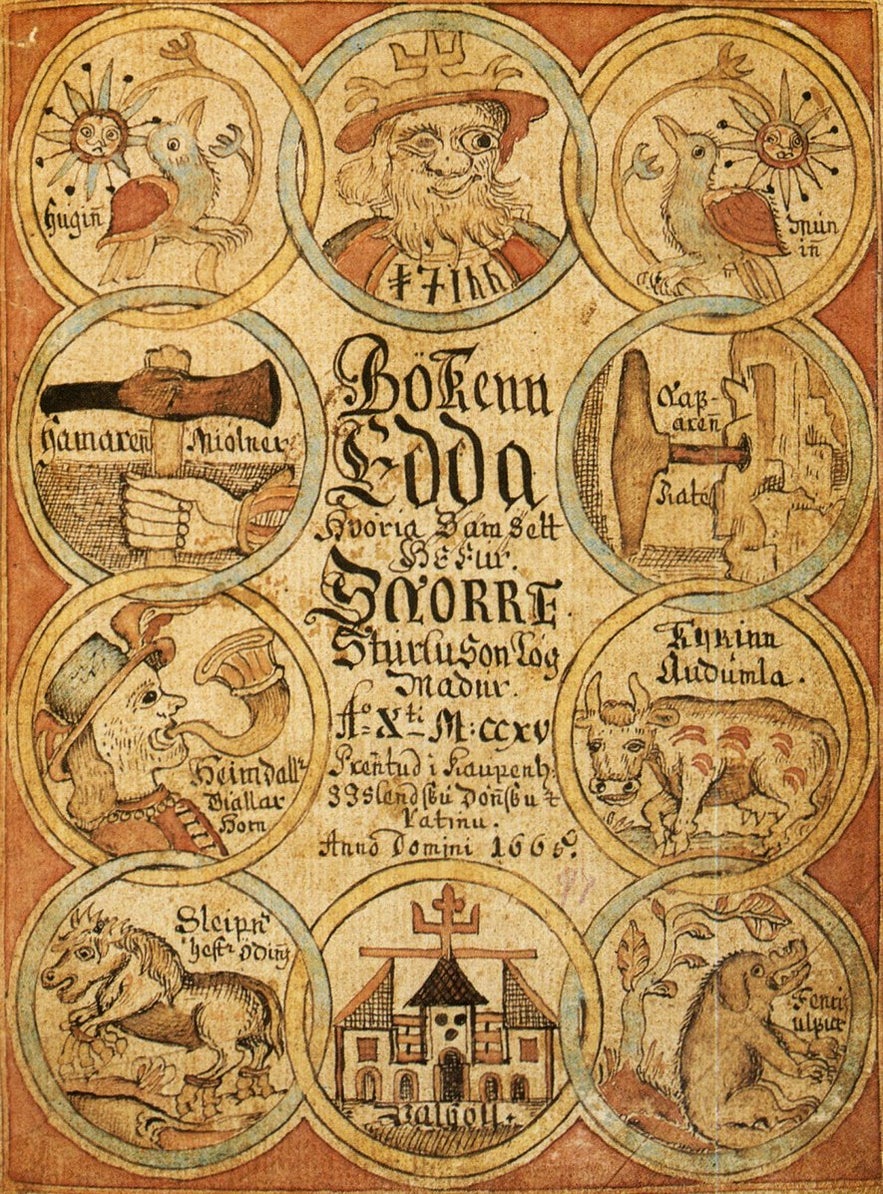 Photo from Wikimedia, Creative Commons, public domain. No edits made.
Photo from Wikimedia, Creative Commons, public domain. No edits made.
Every other year Reykjavik hosts its international literary festival, welcoming acclaimed Icelandic and global authors for free talks, interviews, and readings, largely in English, at venues around the city. Recent editions have run in spring.
Booklovers will find a packed program and chances to meet their heroes, past guests include Margaret Atwood, David Sedaris, Abdulrazak Gurnah, and Claire Keegan.
- See also: Icelandic Literature for Beginners
The Reykjavik International Film Festival
Held annually for eleven days from late September into early October, RIFF showcases bold independent cinema from dozens of countries, with screenings around town, industry talks, and lively side events.
- See also: Movie Locations in Iceland
- See also: The Story of Icelandic Cinema
Iceland Airwaves
Each November, Reykjavik’s signature music festival Iceland Airwaves takes over downtown venues with a city-wide showcase of new talent and headline stars. Performances happen both on official stages for ticket holders and at free “off-venue” gigs in record stores, cafés, and more.
Past lineups have featured international names like Florence + The Machine, Mumford & Sons, and The Flaming Lips alongside Icelandic favorites such as Björk, Sigur Rós, FM Belfast, and Of Monsters and Men. Top DJs also feature across the weekend.
- See also: The Björk Saga
- See also: Sigur Rós | 18 Seconds Before Sunrise
- See also: Of Monsters And Men | A Melodic Odyssey
Christmas in Iceland
Jól/Yule has been celebrated since ancient times, marking the return of the light after the winter solstice around December 21. After Iceland’s conversion to Christianity in the year 1000, Yule blended with Christmas traditions.
Religious or not, Icelanders cherish the season for gift-giving and time with loved ones.
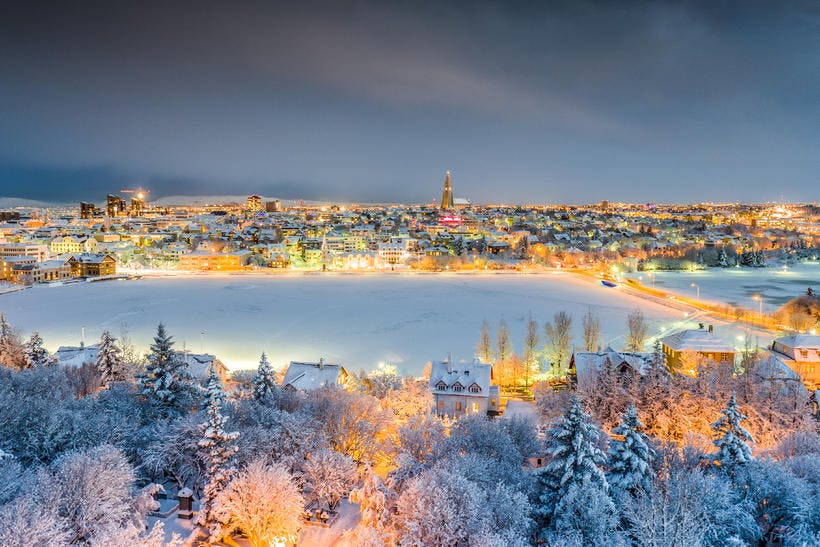
In Reykjavik, stroll Laugavegur on Thorlaksmessa (December 23). The street fills with last-minute shoppers and pop-up performances by soloists, brass bands, and carol singers.
- Get your Travel Voucher to Iceland | Best Christmas Present Ever
- See also: Winter Wonderland of the North | Christmas Tour from Akureyri
In Reykjavik, Akureyri and Isafjordur, people light candles, sing carols, and join peace marches at 6 pm. In Reykjavik, the walk starts at Hlemmur and trails down Laugavegur.
On Thorlaksmessa, many also uphold the pungent tradition of eating fermented skate.
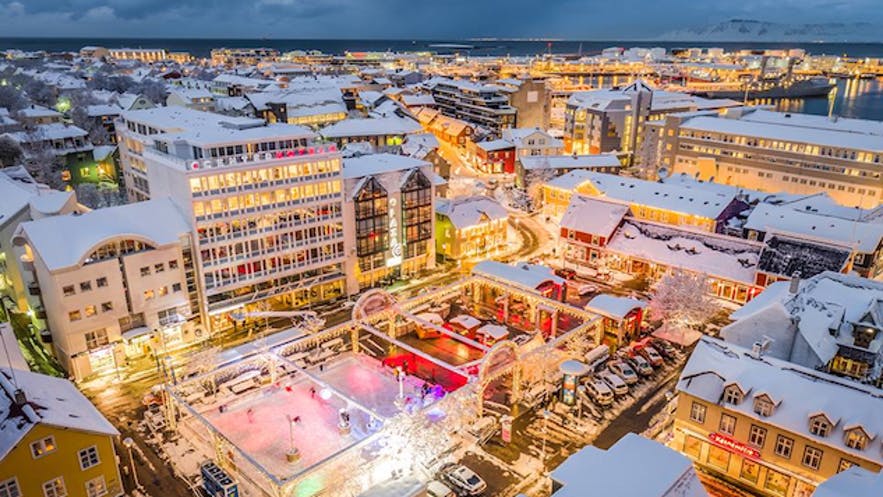
Local folklore adds spice to the season: beware the Yule Cat, look out for the ogress Grýla, and expect visits from the thirteen mischievous Yule Lads.
Today the Yule Lads are more Santa than scoundrel, thirteen of them, in fact, arriving one by one in the run-up to Christmas.
- See also: Christmas in Iceland
- See also: Iceland in December
New Year’s Eve in Iceland
On New Year’s Eve Icelanders gather for family dinner, then head to neighborhood bonfires (áramótabrennur). From 10:30 to about 11:30 pm the streets fall quiet as almost everyone watches Áramótaskaupið, the annual satirical TV revue.
At midnight, the entire sky erupts in fireworks as households light their own, an unforgettable sight, before parties carry on into the early hours.
Folklore says cows speak, seals take human form, the dead rise and elves move house on this night, so keep your wits about you between the bonfire and the dance floor.

